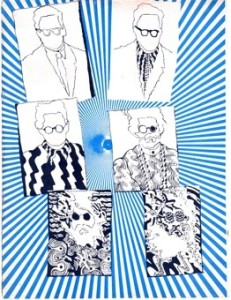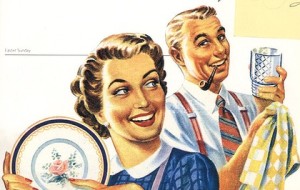 Hippies were seeking individual and group liberation of humans from the constrictions of 1950 Eisenhower rigid social norms. The looming affair between the military and corporations with whom they did business even worried everyone’s grandfather Ike. He was alarmed enough to warn of the coming Military-Industrial Complex that threatened American’s democracy and free way of life.
Hippies were seeking individual and group liberation of humans from the constrictions of 1950 Eisenhower rigid social norms. The looming affair between the military and corporations with whom they did business even worried everyone’s grandfather Ike. He was alarmed enough to warn of the coming Military-Industrial Complex that threatened American’s democracy and free way of life.
Every small town had a group of creative kids that, try as they might, could not take delight in praising the emperor’s new clothes. They were considered freaks. 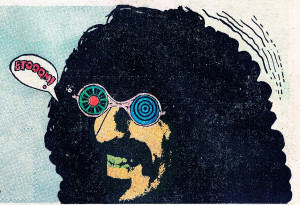 In the shared media age of the 1960s they began to make contact with each other over shared interests. Shows and magazines were launched to cash in on the newly discovered “Teenager” with their disposable cash. But common media created a shared experience, and a shared reaction to it. As they discovered the existence of nearby groups with shared interests, webs of contact grew between these small freaky scenes.
In the shared media age of the 1960s they began to make contact with each other over shared interests. Shows and magazines were launched to cash in on the newly discovered “Teenager” with their disposable cash. But common media created a shared experience, and a shared reaction to it. As they discovered the existence of nearby groups with shared interests, webs of contact grew between these small freaky scenes.
At that time anyone who looked like a hippie truly was your brother or sister freak and would greet you as an old friend. Larger cities had whole communities, but every town had a place where “those hippie kids” gathered together. In Atlanta it was The Strip on Peachtree and the area from there to around Piedmont Park.
In 1967 there was a truly underground swell in small towns all over Alabama, South Carolina, North Carolina, Florida, Tennessee, and Georgia. Everything in the South seems to run slower. Thus it was the Summer of Love happened on the West Coast in 1967. The media made the whole world a voyeuristic participant. Southern freaks who had fled to the hipper West Coast from small minded hometowns, then returned and sparked small local movements. Enough sparked folks began building an underground movement of like minded folks finding each other.
Weekends at Piedmont Park in 1968 Atlanta began to notice an amazing thing. The Georgia of Lester Maddox had flowered forth its own hippy freaks. And suddenly there seemed to be a lot of them each week crawling out from under rocks somewhere and gathering around 8th street to 14th streets on Peachtree and in Piedmont Park.
Though the limits are still debated, everyone around Atlanta knew generally where The Strip was located. Straight suburbanites detoured by to variously ogle hippie chicks, seek drugs, or be outraged and amused at the freakshow. New waves of freaky people constantly arriving in Atlanta from small towns all over the area knew to seek The Strip or Piedmont Park on the weekend to find friendly people.

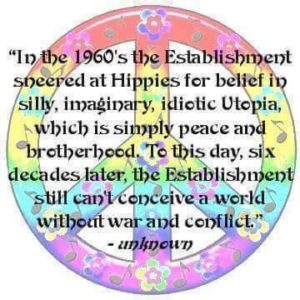 “You’re gonna meet some gentle people there…”
“You’re gonna meet some gentle people there…”

What I Learned and Embraced in the Sixties and Still Hold Dear by Bill Mankin
- Film ForumRead more >>
The Great Speckled Bird Oct 31, 1974 Vol. 7 #48 pg. 1
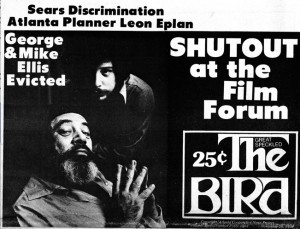
George and Mike Ellis, the kind and talented managers of the Film Forum in Ansley Mall for the past several years, have been evicted from the theatre that ...
- ‘Psych-Out’ and The Love InsRead more >>
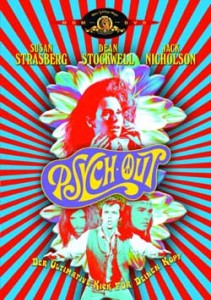
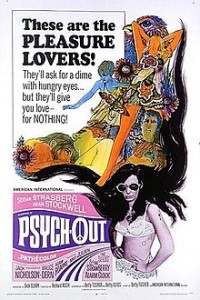 Movies about the social forces working on the minds of concerned young people of the sixties
Movies about the social forces working on the minds of concerned young people of the sixtiesAmericans of all walks were ...
- On the shelf of many a hippie pad:Read more >>
There was a picture of Lenny looking forlornly through jailbars. The caption said so much with just one letter change. “Americans love non-conformity and often reward it with the metal of honor.” A book that opened my mind :
How To Talk Dirty
and
Influence People
by Lenny Bruce.
Paul Krassner editor.
Grok this ...
- Anything you feel should be added?Read more >>
The Message in 2007
Truth and individual freedom. Freedom of expression. Creativity, love and respect for all things. Freedom for an individual to make a choice – sexually, spiritually and socially. The right to be different and still belong. Honor in refusing to fight without judging those who did. Our right to make ...
- What I Learned and Embraced in the Sixties and Still Hold Dear by Bill MankinRead more >>
I finally realized what your question meant: “What did you take away from that time?” Although I did not get this stuff from “The Strip”, per se, I did get it from the cultural transformation of which “The Strip” was a manifestation – one that was easily accessible to an eager and impressionable teenager. So I ...
- The other Lambda Sigma DeltansRead more >>
South Georgia’s Lamdas formed in 1967, but I found this online:
In a central California town in the early 1990s, a group of college students invented the Lambda Sigma Delta (LSD — get it?) fraternity. A number of sweatshirts were sewn-up with colorful greek letters, and a sandwich board was painted for the local college’s “Rush ...
- Lambda Sigma Delta
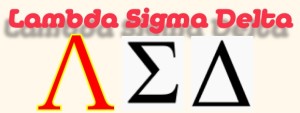 Every small town had a group of creative kids that, try as they might, could not take delight in praising the emporer’s new clothes. In my town we named our group Lambda Sigma Delta. (Get it?)
Every small town had a group of creative kids that, try as they might, could not take delight in praising the emporer’s new clothes. In my town we named our group Lambda Sigma Delta. (Get it?)- Talkin’ bout…
Read more >>My Generation, The Baby Boomers, is the best-documented generation in history. We are the visible evidence of the outburst of Loving, an affirmation of living, which greeted the end of darkness and inhumanity of WWII. We, the Baby Boomers, are our parents saying yes to life. Our stories are varied, yet a thread of commonality runs ...
- Beatnik Era: Poetry In The Coffeehouse
Read more >>By JP Burns (JP) =================
The scene opens in a dimly lit, smoky coffeehouse, populated by pale, gaunt figures in black turtlenecks, goatee’s, and berets. The sound of bongo drums droning in the background, keeping the beat as the lone figure on stage hisses a poem of revolution and woe.
“You’re one cool cat, daddy-o.” ...
- Color TV – Beatniks into Hippies
Read more >>Wikipedia says the following about beatniks. I feel it illustrates a thread in American outsider culture that continued with hippies.
“Life magazine, Charles Kuralt, and a host of other entertainers and journalists reduced Beatness to a set of superficial, silly externals which have stayed with us ever since: goatees, sunglasses, poetry readings, coffeehouses, slouches and “cool, man, ...
- Talkin’ bout…
